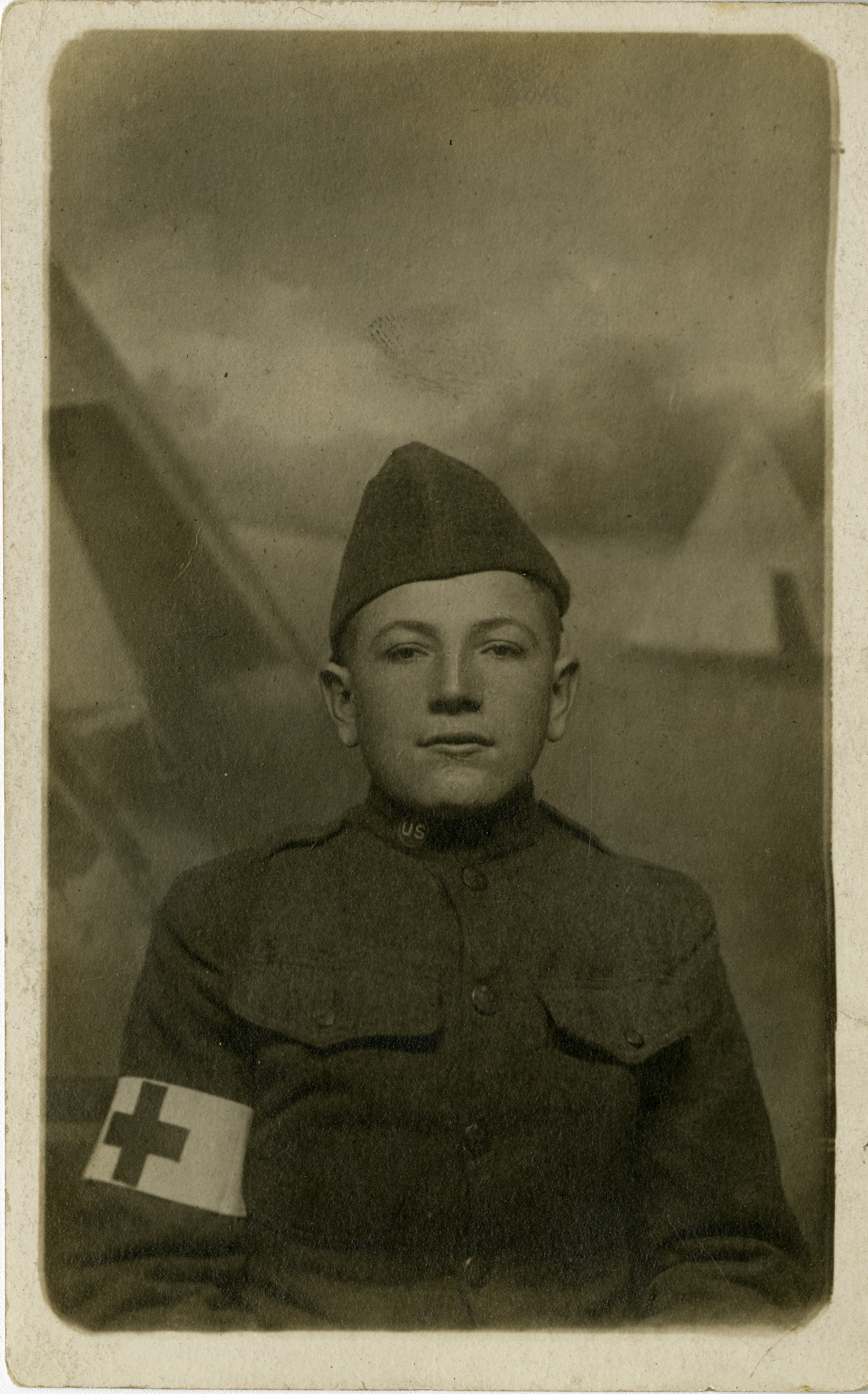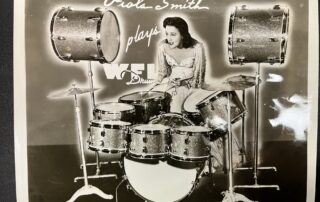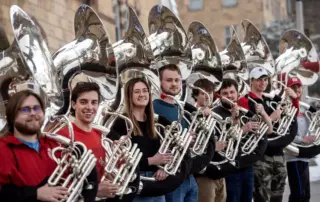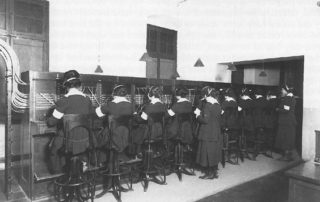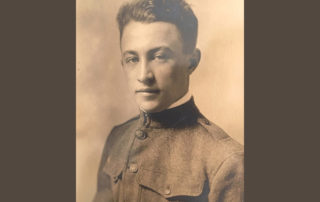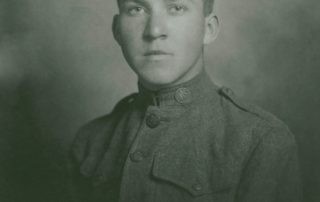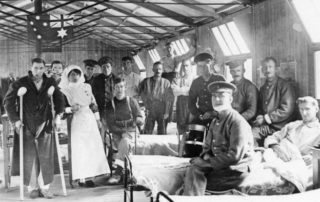John Pavlik was born in Crystal Falls, Michigan, in 1901. He enlisted on April 3rd, 1917, at the age of 16 in Milwaukee. Pavlik joined the 125th Ambulance Company attached to the 32nd Infantry Division. He was discharged on May 30th, 1919, and went to work for the Milwaukee Fire Department.
The poem, “In Flanders Field” was first published on December 8, 1915. Written by Canadian Lieutenant-Colonel John McCrae, the poem quickly became a motivational mantra for recruiting troops and rallying the public behind the war effort. Many World War I veterans identified with the poem and remembered it throughout their lives. Veteran John Pavlik recited the poem from memory during an oral history interview around 1989.
And at this time I’d like to recite [In] Flanders Fields for you as it was written originally and America’s answer to those who made a supreme sacrifice in Flanders Fields. The poem was very, very meaningful. It can be applied to all veterans of all wars in any part of the world that it is being fought by just substituting a word or two here and there.
“In Flanders fields the poppies blow
Between the crosses, row on row,
That mark our place; and in the sky
The larks, still bravely singing, fly,
Scarce heard amid the guns below.
“We are the Dead. Short days ago
We lived, felt dawn, saw sunset glow,
Loved, and were loved, and now we lie,
In Flanders fields.
“Take up our quarrel with the foe:
To you from failing hands we throw
The torch; be yours to hold it high.
If ye break faith with us who die
We shall not sleep, though poppies grow
In Flanders fields.”
Over the years, there were a variety of works published in response to the poem. Pavlik knew some of these, too. Here he recites a mash-up of two of those poems, one by R.W. Lillard and the other by C.B. Galbreath.
America’s answer to those who made a supreme sacrifice is as follows.
“Rest ye in peace, ye Flanders dead.
The fight that ye so bravely led
We’ve taken up. And we will keep
True faith with you who lie asleep
In Flanders fields
With each a cross the mark his bed,
And poppies blowing overhead,
Where once your life blood ran red.
So let your rest be sweet and deep
In Flanders fields.
Fear not that you have died for naught;
The torch ye threw to us we caught,
Ten million hands will hold it high,
And freedom’s light shall never die!
For we’ve learned the lesson that ye taught
In Flanders fields
Your torch and poppy red we now wear in honor of our dead
Your flaming torch aloft we bear,
When a burning heart and oath we swear,
To keep the faith to fight it through,
To crush the foe or sleep with you,
In Flanders Fields.”
The poppies mentioned in these poems would later take on special significance, becoming the memorial flower that to this day commemorates military personnel who have died in war.
Discover more about Wisconsin in the First World War at the Wisconsin Veterans Museum’s Temporary Exhibit – WWI BEYOND THE TRENCHES: STORIES FROM THE FRONT.
